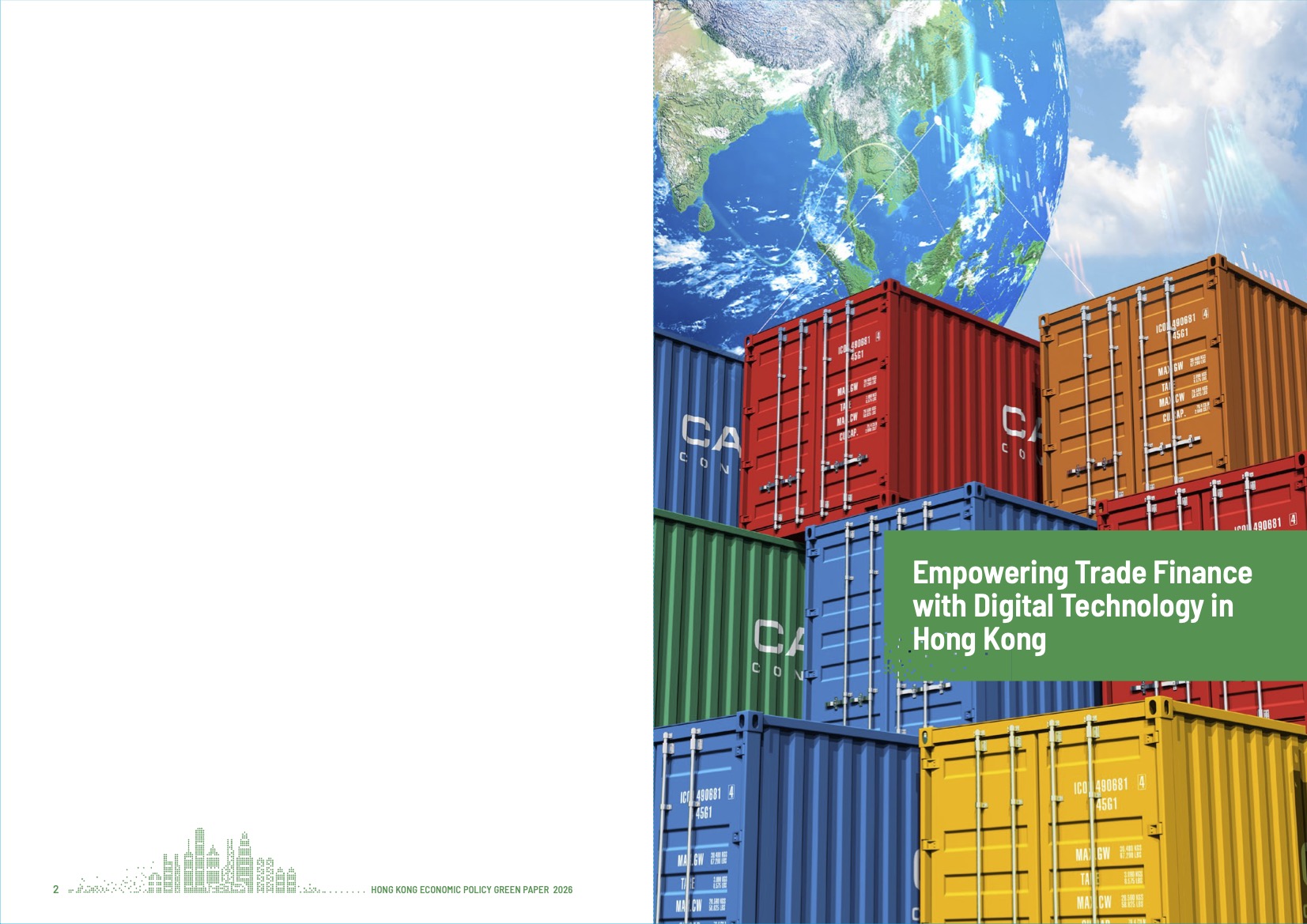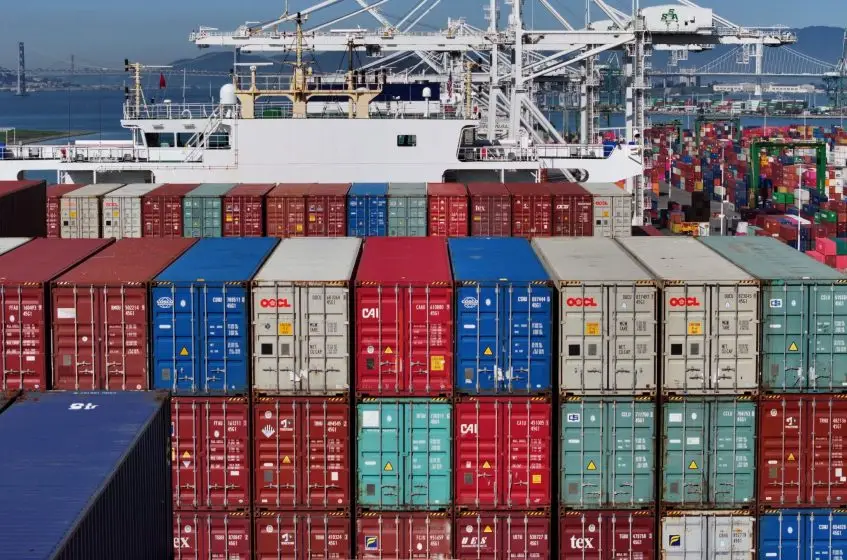Professor Heiwai Tang and Mr Beining Liu
18 June 2025
In the wake of the Second World War, London underwent a profound transformation from a global trade port to an offshore financial centre. In 1964, the city was one of Europe’s three largest ports, handling up to 61.3 million tonnes of cargo. However, by the 1980s, with the advent of large ocean-going vessels and container technology, its enclosed wharves could no longer adapt to the new shipping demands, both geographically and in terms of facilities. As a result, with its cargo handling volume drastically reduced to 25 million tonnes, London lost its crown as a leading regional port.
To address the pressures of transformation, the UK capital demonstrated outstanding adaptability. In 1982, the London Docklands was designated an enterprise zone and a dedicated development corporation was established, attracting £720 million worth of private capital for the development of modern infrastructure and service industries. In the 1990s, with the completion of the Docklands and the Canary Wharf in particular, a large number of multinational headquarters were set up, giving rise to the networks of high-efficiency logistics, warehousing, and financial services in the area. Gradually reducing reliance on traditional freight transport, London evolved into a diversified centre for services and finance worldwide.
By continuing to attract multinational investment and the relocation of corporate headquarters, London has not only moved away from reliance on local cargo transport, but has also succeeded in maintaining its vitality and strategic value as a global hub for the flow of capital, data, and professional services. London’s offshore status has provided the city with greater institutional and legal flexibility, allowing it to rapidly adapt its policies to changes in global markets and to lower the costs of corporate establishment and operations. Especially after the Brexit, London has beefed up financial and trade cooperation with non-EU markets and actively sought to enhance its influence in emerging markets and under multilateral frameworks, further expanding its international connectivity. Furthermore, London’s highly open information flows and judicially sound environment have also contributed to its appeal as a cluster for data, legal, and technological services, enabling its upgrading and transformation from “goods flows” to “knowledge flows” and “capital flows”.
Likewise, Hong Kong is at a similar crossroads today. According to data from the Census and Statistics Department, local private consumption experienced a 1.6% year-on-year decline in the first quarter of 2025. The consumption market showed contraction while the economic structure apparently exhibits homogeneity. Despite efforts to promote technological innovation, data fusion, and economic diversification, the Hong Kong SAR Government has faced challenges in terms of policy flexibility, financial innovation capabilities, location use efficiency, and the integration of comprehensive services.
In the process of planning its future, Hong Kong must perform an integrated analysis of such elements as historical factors, market dynamics, and the geopolitical landscape. To maintain and enhance its influence in the global economic system, Hong Kong must proactively seek transformation, synergizing its competitive advantages into policymaking and strategic deployment. Taking a leaf from London’s experiences, Hong Kong is likely to seal its place as a new hub in the international supply chain. We recommend focusing on the following four areas.
Flexible policies and all-round services
A flexible and highly efficient policy environment is a prerequisite for success in transformation. The financial Big Bang in 1986 marks the turning point in London’s financial reform. By relaxing financial regulations, the British regulators introduced market mechanisms and opened up the services sector, providing an immediate stimulus to the financial market. London soon drew in a large number of international financial institutions, reinforcing its status as a hub in the world’s financial system. Data from the City of London demonstrated that, as a result of the reform, the number of international banks in the city expanded considerably and financial transactions became much more active.
Having long upheld the principle of “big market, small government”, Hong Kong boasts a well-established financial regulatory system, which epitomizes its systemic advantage as a solid foundation for the transformation. To further increase its competitive edge in the international supply chain services market, Hong Kong should emulate London’s approach and strengthen professional support in legal, tax, and business consulting services, especially to address the increasingly complex cross-boundary compliance requirements in high value-added supply chain management.
In addition, to enhance policy transparency and market confidence, a clear and well-defined policy expectations mechanism is equally indispensable. For instance, reports on policy and industry trends can be released on a regular basis by the Census and Statistics Department, similar to the information disclosure and market communication mechanisms implemented during the initial stage of the London reform. This not only helps to win market trust but also serves to boost Hong Kong’s coordinating capabilities within the service economy.
Golden opportunity for financial innovation
During the Cold War, to circumvent US financial regulations, the Soviet Bloc countries deposited US dollars into banks in London, which contributed to the development of an active Eurodollar market. By the end of the 1970s, London accounted for over 25% of worldwide Eurodollar business transactions, laying the foundation for its status as an international capital hub. By the same token, Hong Kong can leverage its unique geopolitical and systemic advantages to further promote the internationalization of the RMB in global finance and trade.
Recent years have witnessed a climbing share of the RMB in the foreign-exchange reserves of central banks. Due to its close ties with the Chinese mainland, Hong Kong has emerged as the world’s largest offshore RMB trading centre. According to data from the Hong Kong Monetary Authority (HKMA), as of the end of April 2025, the total RMB deposits in Hong Kong amounted to RMB1.0309 trillion. To capitalize on this advantage, Hong Kong must accelerate financial innovation by fostering the creation of digital platforms and optimizing cross-border payment systems. These measures will bolster the RMB’s role in international trade and investment.
As a matter of fact, Hong Kong has no shortage of initiatives in financial technology. The stablecoin regulatory regime places the SAR as one of the first jurisdictions to establish a licensing framework for stablecoin issuers, thereby expanding Hong Kong’s influence in the digital financial arena. Against the backdrop of surging geopolitical uncertainty and growing demand for non-US asset allocation, the stablecoin regulatory regime offers Hong Kong an opportunity for institutional innovation. This new initiative will appeal to international investors seeking diversified assets and risk mitigation options and elevating Hong Kong’s status as a capital intermediary platform. At the same time, many international AI companies that have newly set up operations here are facilitating the extension of cutting-edge technologies such as blockchain and remote sensing to financial services. Additionally, the HKMA has also proactively expanded the digital RMB and mBridge projects to pave the way for the RMB internationalization through institutional measures.
By deepening financial cooperation networks with Middle Eastern and ASEAN countries, Hong Kong can further currency exchange, align financial products, and foster a supply chain financing ecosystem. These measures will help to build a financial services system characterized by technological advantages and systemic flexibility, empowering Hong Kong to take greater strategic initiative in global supply chain finance.
Leveraging strategic location for global connectivity
Boasting a unique strategic location between Europe and North America, within the Greenwich time zone, and spanning the trading hours of the three continents of Asia, Europe, and North America, London is naturally endowed as a global, round-the-clock financial and trade centre.
As China’s important gateway to the world, with the Mainland at its back and Southeast Asia to the east, Hong Kong is geographically well positioned to develop into a regional supply chain and trade services hub. Benefitting from the continued advancement of the Belt and Road Initiative, the city’s role in cooperation among related countries has gained more prominence. Furthermore, its active pursuit of membership in the Regional Comprehensive Economic Partnership (RCEP) has provided Hong Kong with greater opportunities for market access and service expansion.
At the institutional level, Hong Kong has also proved notable integration capabilities. The signing of the Convention on the Establishment of the International Organization for Mediation in May 2025 signifies Hong Kong’s milestone in the global legal service system. Harnessing its common law system and bilingual (Chinese and English) environment under the “One Country, Two Systems” framework, the city will incorporate an international mediation mechanism into the supply chain system to deliver high value-added services for the resolution of cross-border disputes. Consequently, Hong Kong will not only secure a place among traditional logistic nodes but is poised to emerge as an international legal and business services hub, paralleling London’s historical development.
A two-way development hub serving the world
The success of London hinges not only on its financial prowess but also on its standing in cross-border trade and capital flows. Since the 1970s, London has, through its flexible financial policies, become both a magnet for foreign funds and a prime destination for company headquarters. Its highly efficient, mutually complementary financial market and port logistics systems have provided enterprises with a wide range of services spanning financing, logistics, and management support.
Hong Kong is ideally positioned to develop a similar “twin hub”. As Asia’s leading financial centre, the city boasts a highly open financial system and a solid foundation in ports, airports, logistics, and warehousing. Looking ahead, Hong Kong can, through systematic advancement of supply chain management and service upgrading, support enterprises in optimizing processes and controlling costs, thereby attracting more multinational companies to establish regional headquarters and management centres here.
Regarding offshore RMB financing and trade settlement, it would be advisable for Hong Kong to draw on London’s experience by utilizing its world-class financial and infrastructural facilities to render integrated services for multinational corporations. Hong Kong has already been exploring the innovative use of central bank digital currencies in cross-border payments in collaboration with United Arab Emirates, Thailand, and other countries. Such collaborations can enhance the value-added of financial services and improve global network connectivity.
Besides, Hong Kong should encourage local professional services institutions to deepen their connections with international markets. The creation of industry ecosystems in areas such as supply chain management, risk control, and tax consulting, will enable the city to evolve from a service platform to a management hub, transforming into a strategic node for international enterprises seeking to penetrate the Asia-Pacific market.
In essence, amidst the increasingly complex backdrop of the global economy and geopolitics, Hong Kong now stands at a critical juncture of strategic adjustment. Inspired by London’s successful transformation from a traditional port city to a modern financial and services centre, Hong Kong can put in place reforms across multiple synergistic dimensions, including systems, services, and technology. Beyond encouraging policy flexibility, it is essential to increase supply chain service capabilities, expand room for the RMB internationalization, and capitalize on geographic and institutional advantages to build systematic and multifunctional international services platforms.
In the long run, Hong Kong should not only reinforce its status as an international financial centre but also redefine its fundamental role on the world economic stage, fully supported by high value-added supply chain services. We believe that Hong Kong is perfectly capable of leapfrogging from a trading entrepot to a management hub through a profound transformation and continuing to play an irreplaceable role in the global economy.







